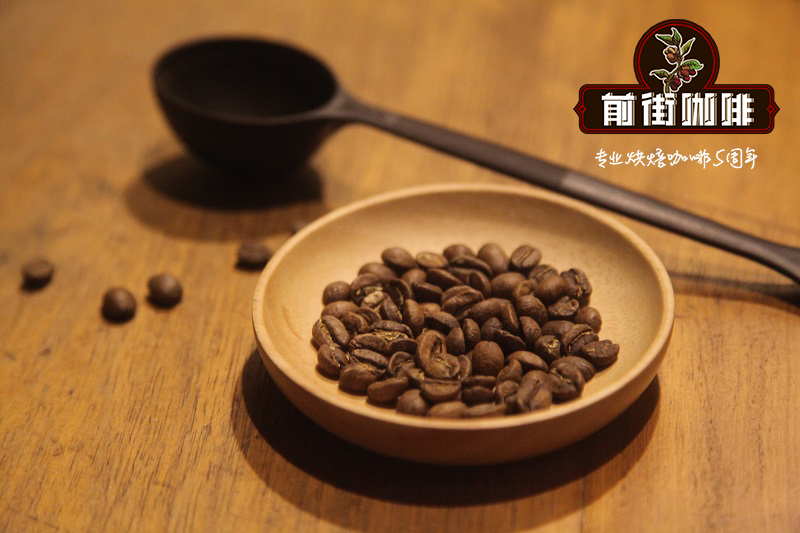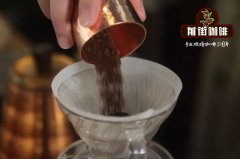Bitter coffee beans are bad? Why coffee beans are bitter_How to buy coffee beans without bitterness ?

Professional coffee knowledge exchange more coffee bean information please follow the coffee workshop (Wechat official account cafe_style)
Bitterness has always been an unpleasant term in boutique coffee. Good coffee should be sweet and delicious, well-balanced, maybe sour, and make it taste good without sugar. But what makes coffee bitter? Is the bitterness really that bad? Let's see.
Doesn't ● taste bitter?
In fact, the bitter taste is not so bad, in fact, if there are non-bitter coffee beans, it may taste too sour or too sweet, the key is "balance". A little bitterness can bring out more rich and diverse flavor levels, as long as the bitterness is not too heavy.
Interestingly, however, for most people, we can accept bitter coffee more than very sour coffee.
However, coffee with too much bitterness is really bad, so let's take a look at what bitterness is and how to avoid it when brewing.
What is the bitter taste of ●?
Everyone has the experience of eating bitterness, but there are often situations in which you eat bitterness while others do not. This is the sensory cognition of taste, which means that sensory feelings vary from person to person.
It is also important to note that taste is not just about creating bitterness. The word flavor represents the gathering of many things, including smell, mood, music and even altitude. However, this is not the content of this article, now let's focus on taste, from a scientific point of view of the bitterness of coffee.
The science of ● bitterness
People used to think that the tongue has different distribution of taste senses, such as sweet, salty, sour and bitter. But now we all know that these flavors can be felt in any part of the tongue.
Because there are a lot of proteins in the sensory cells of our tongue, about 35 proteins react with compounds in food to produce a bitter taste, according to the American Institute of Medical quality and efficiency.
This means that the bitter taste comes from substances called phenols in coffee, the most common of which is also called chlorogenic acid, which we will discuss later. This substance accounts for about 8% of raw coffee beans in Arabica, and it has a great effect on the taste of coffee.
There are many kinds of chlorogenic acid, and we only need to know the two most special ones. Chlorogenic acid: the most common compound in raw beans, di-CGA reflects the main substance of coffee bitterness.
Although most of the bitterness of coffee comes from quinic acid, some studies have pointed out that caffeine can also affect bitterness, but the effect of caffeine on bitterness is secondary at best.
● comes from the bitterness of raw beans.
When we talk about the bitterness of coffee, we often think of roasting, but in fact some coffee contains more bitterness than others.
First of all, robusta coffee is more bitter than Arabica because it has higher levels of chlorogenic acid and caffeine. Robusta's chlorogenic acid reaches 10% in the raw bean state, while Arabica only 2%. In addition, Robusta has more than twice as much caffeine as Arabica.
However, it is not just coffee varieties that affect bitterness. In 2006, the Brazilian Journal of Plant Physics published a study on phenolic compounds: "Variety, species genes, maturity, external environmental factors and planting environment." are important factors that affect the content of quinic acid in raw beans, which in turn affects the last cup of coffee drunk.
The influence of the treatment method, especially the monsoon treatment, is also mentioned in the study. This is a traditional treatment in India, which exposes raw beans to high humidity monsoon conditions, which can reduce the chlorogenic acid and bitterness of raw beans.
As for the maturity of coffee fruit, the study pointed out that "for example, unripe beans contain more quinic acid, which is why a cup of coffee will be bitter when there are many unripe beans."
Does ● roasting increase the bitterness of coffee?
During baking, chlorogenic acid changes and decomposes. Although the main bitterness of coffee comes from chlorogenic acid, in fact chlorogenic acid itself does not have a bitter taste! Chlorogenic acid breaks down into "chlorogenic acid lactones" and "phenyllindane" when baked. In 2007, pioneer scholar Thomas Hofmann pointed out that phenyllindane can produce some bitterness, in addition, phenyllindane can also affect the flavor of coffee roasting.
Light-roasted to medium-roasted coffee has more chlorogenic acid lipids, which Hofmann describes as a "pleasant, high-quality bitter taste". The deeper-roasted coffee has more phenyl lindane, which "tastes bitter and remains in the mouth".
So light to medium roasted coffee will have a lower bitter taste and retain the original aroma and flavor of the coffee. But of course bitterness is a subjective feeling. Just because you don't like bitterness doesn't mean other people don't like it.
How to avoid bitterness when cooking ●
Can you avoid bitterness if you buy a light baked high-quality Arabica? Not necessarily. Whether you brew it yourself or by a professional barista, it will still affect the flavor of the last cup.
Do not over-extract coffee to avoid bitterness, because bitterness is released in large quantities only in the latter part of brewing. There are many reasons for extraction: cooking method, grinding thickness, water temperature, cooking time, etc., and the following suggestions.
First of all, no matter what brewing method is used, make sure that the coffee is ground. The finer the grinding, the larger the surface area of the coffee powder. Although the stronger coffee will be extracted, it will also increase the risk of over-extraction.
The next step is to confirm the temperature of the boiling water. The higher the water temperature, the more substances extracted. If the coffee bean tastes bitter, it is recommended to cook it at a lower water temperature.
Next, it depends on the brewing time. If the coffee is bitter, it may take too long to brew.
Finally, remember that the extraction is to achieve the overall balance, if you adjust the cooking factors, such as adjusting the grinding thickness, then the cooking time will also be affected.
A delicious cup of coffee needs to gather the right grinding thickness, water temperature and brewing time. Source: Matt Fury
Bitterness is not always that bad, but there will be problems if bitterness covers other flavors. However, after reading this article and understanding the source of the bitterness of coffee, we can explore how to control these factors.
Follow the suggested steps to find out the balance of taste and flavor you like in the coffee.
● non-bitter coffee bean brand recommendation
Qianjie Coffee roasted non-bitter coffee beans: washed Yega Chevy Coffee, Kenya AA Coffee, Panamanian Flower Butterfly Coffee and so on are fully guaranteed in terms of brand and quality. And more importantly, the performance-to-price ratio is extremely high, a pack of half a pound 227 grams, the price is only 80-90 yuan. According to the calculation of 15 grams of powder per cup of hand-brewed coffee, 15 cups of coffee can be made in a bag, and each cup of coffee costs only about 6 yuan, which is very cost-effective for coffee shops to sell dozens of yuan a cup.
Qianjie coffee: Guangzhou bakery, the store is small but a variety of beans, you can find a variety of unknown beans, but also provide online store services. Https://shop104210103.taobao.com
Important Notice :
前街咖啡 FrontStreet Coffee has moved to new addredd:
FrontStreet Coffee Address: 315,Donghua East Road,GuangZhou
Tel:020 38364473
- Prev

There is no coffee bean that is not sour or bitter! Coffee beans that are not sour or bitter do not exist!
Professional coffee knowledge exchange more coffee bean information please pay attention to the coffee shop (Wechat official account cafe_style) on the market Yunnan coffee beans, no matter where the origin, its quality characteristics are generally not bitter, not sour, not astringent. The merchants will certainly tell you that this is the excellent quality of Yunnan coffee, which is worth paying for, because there is absolutely no other coffee.
- Next

Black coffee must be sour and bitter? How to drink black coffee without bitterness? _ recommended for coffee beans that are not bitter.
Professional coffee knowledge exchange more coffee bean information Please follow the coffee workshop (Wechat official account cafe_style) have such experience: when ordering individual coffee in a cafe, the first question is usually acid rejection? Can you accept acidity? Sour? Why is the coffee sour? Is it sour? We all have this kind of doubt in our hearts. Unpleasant sour feelings, usually.
Related
- Detailed explanation of Jadeite planting Land in Panamanian Jadeite Manor introduction to the grading system of Jadeite competitive bidding, Red bid, Green bid and Rose Summer
- Story of Coffee planting in Brenka region of Costa Rica Stonehenge Manor anaerobic heavy honey treatment of flavor mouth
- What's on the barrel of Blue Mountain Coffee beans?
- Can American coffee also pull flowers? How to use hot American style to pull out a good-looking pattern?
- Can you make a cold extract with coffee beans? What is the right proportion for cold-extracted coffee formula?
- Indonesian PWN Gold Mandrine Coffee Origin Features Flavor How to Chong? Mandolin coffee is American.
- A brief introduction to the flavor characteristics of Brazilian yellow bourbon coffee beans
- What is the effect of different water quality on the flavor of cold-extracted coffee? What kind of water is best for brewing coffee?
- Why do you think of Rose Summer whenever you mention Panamanian coffee?
- Introduction to the characteristics of authentic blue mountain coffee bean producing areas? What is the CIB Coffee Authority in Jamaica?

